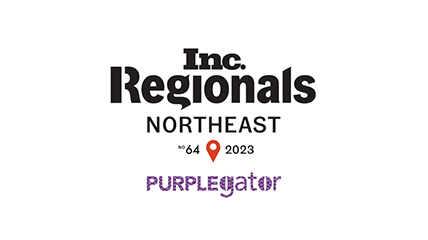Blog /
Is AI Content Bad for SEO?

Artificial Intelligence-generated content increases the growing debates between marketers and SEO professionals. The emergence of AI-based writing tools that can quickly curate blog posts, to create descriptions of your products in ways, has now changed how one creates content. Or, does all this convenience mean doom to SEO?
AI content is a blessing as much as it is a probable pitfall. Where it promises efficiency and scale, questions are raised on quality, originality, and adherence to guidelines imposed by search engines. So, this article will find out whether AI content is poor for SEO, what’s good and bad about the practice, and how businesses can make the most from it. Keep an eye out to get the right mix between AI-driven and human-made content in the most workable form for the field of SEO.
The Role of AI in SEO Content Creation
How AI Is Revolutionizing Content Creation
AI tools, in particular, have begun writing automated content that transforms the content marketing landscape. With the advent of ChatGPT, Jasper, and then Writesonic, there was a number of platforms claiming to churn out massive texts within seconds. Such machines have helped businesses with bulk content demand. Artificial intelligence will design copies for blog posts, product descriptions, email copy, or whatever to reach the desired intent and SEO objectives of the users.
Beyond speed, AI-powered tools analyze search trends and suggest optimized keywords so that the content will still be relevant to search algorithms. Structural recommendations by these tools will further help the writer piece together more targeted and cohesive material.
Benefits of Using AI Content for SEO
AI content brings significant advantage to SEO strategies. The capability for scaling production without compromising on keyword integration is a major factor for businesses dealing with several campaigns. AI tools are good at analyzing enormous sets of data, thereby enabling them to create content that targets specific audiences.
Also, AI mitigates the risk of human error in the implementation of technical SEO elements, such as meta descriptions and alt text. In this context, AI provides an inexpensive solution for small businesses or smaller teams to stay competitive within search rankings.
Potential Drawbacks of AI Content
This isn’t to say that AI-created content is without its flaws: many tools lack the nuance and emotional resonance of human writing. Your readers might find such content a bit less engaging or, well, less authentic, ultimately hurting user engagement metrics such as time-on-page or click-through rates.
There is also the risk of creating content that violates Google’s guidelines, especially in cases where such content happens to be too generic or lacking in originality. AI writing tools depend largely on pre-existing information, which may inadvertently give rise to duplicate content issues. For search engines, user-oriented content is first; failing to add unique values means penalties.
How AI Content Affects Search Engine Rankings
Google’s Stance on AI Content
Google’s stance on AI-generated content has significantly changed. And while the search engine behemoth does not penalize any AI content outright, above all, it stresses quality and relevance. Google evaluates content based on the E-A-T principles: Expertise, Authoritativeness, and Trustworthiness. AI-generated content that meets such standards can perform well; however, low-quality and auto-generated material risks getting flagged as spam.
What’s more, Google’s policies explicitly state that content designed solely to manipulate search engines is not acceptable, whether AI- or human-generated. That means AI content has to be user-centric and should follow the search intent. Algorithms reward originality, usefulness, and depth, and therefore, AI-generated text should always provide something insightful.
Duplicate Content and SEO Penalties
Duplicate content is one of the biggest mistakes of using AI in content creation. Most of the tools take information from previously written content, which sometimes can result in very similar content to what was already online. This is considered duplicate content by search engines, which will dilute SEO performance and may be subject to penalty in extreme conditions.
Prevention from duplication requires some oversight, though. Always check the originality of AI-generated text and pass it through plagiarism-checking tools before publishing. Combine AI output with something uniquely created by a human to make it stand out and meet SEO guidelines.
Can AI Content Rank Well?
AI-generated content will do just fine, as long as it has good SEO to go along with it, along with adding a little human touch. The AI might generate outlines, rough drafts, and then its work gets modified by human editors for correctness, tone, and relevance. Quite often, good examples of success, especially considering cost-efficiency, can be viewed in AI-assisted blogging or product descriptions, replete with highly performing key phrases and formatting with users in mind.
But AI alone isn’t the magic to success. Most top contents have great subtlety in telling, emotional touch, or profound knowledge-qualities that AI can seldom generate without human intervention. Strong rankings are achieved when efficiency provided by AI meets human creativity.

Best Practices for Using AI Content in SEO
Combine AI with Human Input for Better Results
AI tools are great for efficiency in content creation, but most often their output needs to be refined by humans. This includes fact-checking, adding context, and adjusting tone as necessary to resonate with target audiences. This hybrid process helps guarantee an authentic, engaging final product and may yield faster SEO results.
Focus on Value-Added Content
AI content should focus on adding value to the readers by not regurgitating information but rather answering specific questions, trying to solve problems, or presenting the data in a unique way. Thus, content that focuses primarily on user needs will undoubtedly increase engagement and align much better with search engine algorithms.
Optimization for User Experience
Even the best of content fails if it is difficult to read or navigate. Consider structuring AI-generated material with clear, highlighted headings, short paragraphs, and bullet points where that makes sense. Adding visualization elements, like charts and diagrams, further helps readability and user satisfaction.
Avoiding Keyword Stuffing
Keyword integration, even through AI writing, should remain natural. Overload content with repetitive keywords is harmful in terms of readability, and triggers penalties from search engines. So, focus on semantic variations and insert keywords where it genuinely makes a fit into the copy to ensure the ease of smooth flow.
Alternatives to AI Content for SEO
When to Rely on Human Writers
There are times when human writers become necessary with regard to SEO content. In most instances, highly technical or subtly nuanced topics will require such subject matter expertise that these AI tools simply cannot match. Human writers can do thorough research from reliable sources and can present the information clearly and precisely.
Complex subjects, such as legalese or medical counsel, require precision and a human touch to engender confidence and command authority. Areas where human insight and the ability to use language appropriate for specific audiences are particularly valued include creative storytelling, maintaining consistency in brand voice, and cultural sensitivity. These aspects make human writers invaluable in certain projects.
Combining AI and Traditional SEO Strategies
The best of both worlds would be to adopt a hybrid approach: letting AI tools create bulk content, such as outlines, meta descriptions, or first drafts, while the human writer finishes and refines those into something that best expresses the brand’s voice, values, and meets the needs of its audience.
It accelerates the creation process without sacrificing quality. For instance, AI could produce a well-structured article about something trending, while a human writer would add flesh, unique insights, and emotional depth. Combining the efficiency of AI with human creativity ensures that the content meets both user expectations and the demands of search engines.
The Future of AI and SEO Content
The Evolution of AI in SEO
It accelerates the creation process without sacrificing quality. For instance, AI could produce a well-structured article about something trending, while a human writer would add flesh, unique insights, and emotional depth. Combining the efficiency of AI with human creativity ensures that the content meets both user expectations and the demands of search engines.
Future developments may include AI creation of multimedia-rich content-manifesting interactive infographics or even video scripts-aligned with SEO goals. Nevertheless, human monitoring will be very important for ensuring originality, accuracy, and observance of ethics.
AI and SEO Ethics
The increasing application of AI naturally raises some significant ethics-based questions. Transparency is of great essence: audiences need to know if content is AI-generated, particularly in industries where truth may have life or death importance, such as in news and healthcare. Other very critical considerations include the avoidance of copyright infringement by any AI-generated material.
Another challenge of AI-generated content is ownership. Businesses have to have direct policies regarding who owns the intellectual property and how it is used. Not only does embracing ethical practices mitigate risks, but doing so builds credibility with users and search engines.









